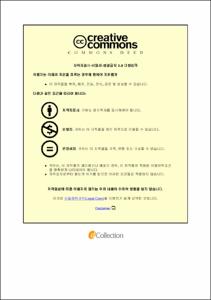호텔 내부고객의 불량행동이 직무스트레스와 직무만족, 이직의도에 미치는 영향
- Abstract
- The Effect of Internal Customer's Bad Behavior on Job Stress, Job Satisfaction and Turnover Intention: Focus on the Five-star Luxury Hotels in Busan
Lee In Sook
Department of Business Administration, The Graduate School,
Pukyong National University
Abstract
Customers experiencing hotel service remember consciously or unconsciously what they have been treated by the employee and management. Internal customer's bad behavior can largely influence customers’ negative emotions such as a lack of caring, concern, politeness, and so on. This behavior eventually makes an negative impact progressively on the hotel's vigor, internal consequences, and organizational performance.
The purpose of this study is to find out a model that examines the relationships among the organizational bad behavior to internal customers, job stress, job satisfaction, and turnover intention, focusing on five-star luxury hotels in Busan.
A total of 540 questionnaires were collected and analyzed from internal staffs who worked at five-star hotels located in Busan. Exploratory factor analysis, comfirmatory factor analysis, and structural equation modeling were employed to test the hypotheses of the proposed model utilizing R program package.
The research findings are as follows. Firstly, organizational bad behavior to internal customers were composed of abusive supervision behavior, conflict behavior for human relations, and department silo. Second, these three dimensions had a positive impact on turnover intention. Third, abusive supervision, conflict behavior for human relations, and department silo of hotel internal customers had a positive effect on job stress. Fourth, department silo in organizational bad behavior had a significantly negative impact on the job satisfaction. Fifth, job stress positively influenced on job satisfaction. Sixth, job stress made a positive impact on turnover intention. Seventh, job satisfaction negatively impacted on turnover intention.
This study stressed that luxury hotels in Busan must deal with bad behaviors to the internal customers primarily in order to prevent emotional job stress and turnover intentions, increase job satisfaction, and improve service performance.
Key Words: Bad Behavior, Hotel Internal Customers, Job Stress, Job Satisfaction, Turnover Intention, Five-Star luxury Hotels, Busan
- Issued Date
- 2021
- Awarded Date
- 2021. 2
- Type
- Dissertation
- Publisher
- 부경대학교
- Affiliation
- 부경대학교 대학원
- Department
- 대학원 경영컨설팅협동과정
- Advisor
- 설훈구
- Table Of Contents
- 제 1 장 서론 1
제 1 절 연구배경 및 연구목적 1
가. 연구배경 1
나. 연구목적 5
제 2 절 연구의 구성 6
제 2 장 이론적 배경 8
제 1 절 내부고객의 불량행동 8
가. 내부고객의 개념 8
나. 불량행동의 개념 10
다. 내부고객 불량행동의 선행연구 11
제 2 절 내부고객 불량행동의 구성요소 13
가. 비인격적 감독행동의 개념 14
나. 비인격적 감독행동의 선행연구 16
다. 인간관계 갈등행동의 개념 18
라. 인간관계 갈등행동의 선행연구 21
마. 부서이기주의의 개념 24
바. 부서이기주의의 선행연구 26
제 3 절 직무스트레스 28
가. 직무스트레스의 개념 28
나. 직무스트레스의 선행연구 31
제 4 절 직무만족 33
가. 직무만족의 개념 33
나. 직무만족의 선행연구 36
제 5 절 이직의도 39
가. 이직의도의 개념 39
나. 이직의도의 선행연구 42
제 3 장 연구방법 44
제 1 절 가설설정 및 연구모형 44
가. 가설설정 44
나. 연구모형 54
제 2 절 변수의 조작적 정의 및 측정문항 55
가. 내부고객 불량행동 55
나. 직무스트레스 56
다. 직무만족 56
라. 이직의도 57
마. 측정문항 58
제 3 절 자료수집 및 분석방법 60
제 4 장 실증분석 61
제 1 절 표본의 일반적 특성 61
제 2 절 측정도구의 신뢰성 및 타당성 분석 64
가. 신뢰성 분석과 탐색적 요인분석 64
나. 확인적 요인분석 67
(1) 집중타당성 67
(2) 판별타당성 71
제 3 절 가설검증 72
가. 연구모형 적합도 72
나. 가설검증 74
다. 가설검증에 대한 결과 78
제 5 장 결론 80
제 1 절 연구결과의 요약 80
제 2 절 연구의 시사점 84
제 3 절 연구의 한계점 및 향후 연구과제 87
참 고 문 헌 88
설 문 지 107
- Degree
- Doctor
- Files in This Item:
-
-
Download
 호텔 내부고객의 불량행동이 직무스트레스와 직무만족, 이직의도에 미치는 영향.pdf
기타 데이터 / 1.14 MB / Adobe PDF
호텔 내부고객의 불량행동이 직무스트레스와 직무만족, 이직의도에 미치는 영향.pdf
기타 데이터 / 1.14 MB / Adobe PDF
-
Items in Repository are protected by copyright, with all rights reserved, unless otherwise indicated.